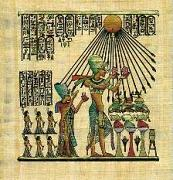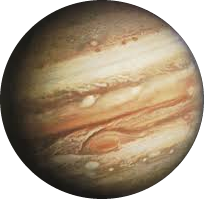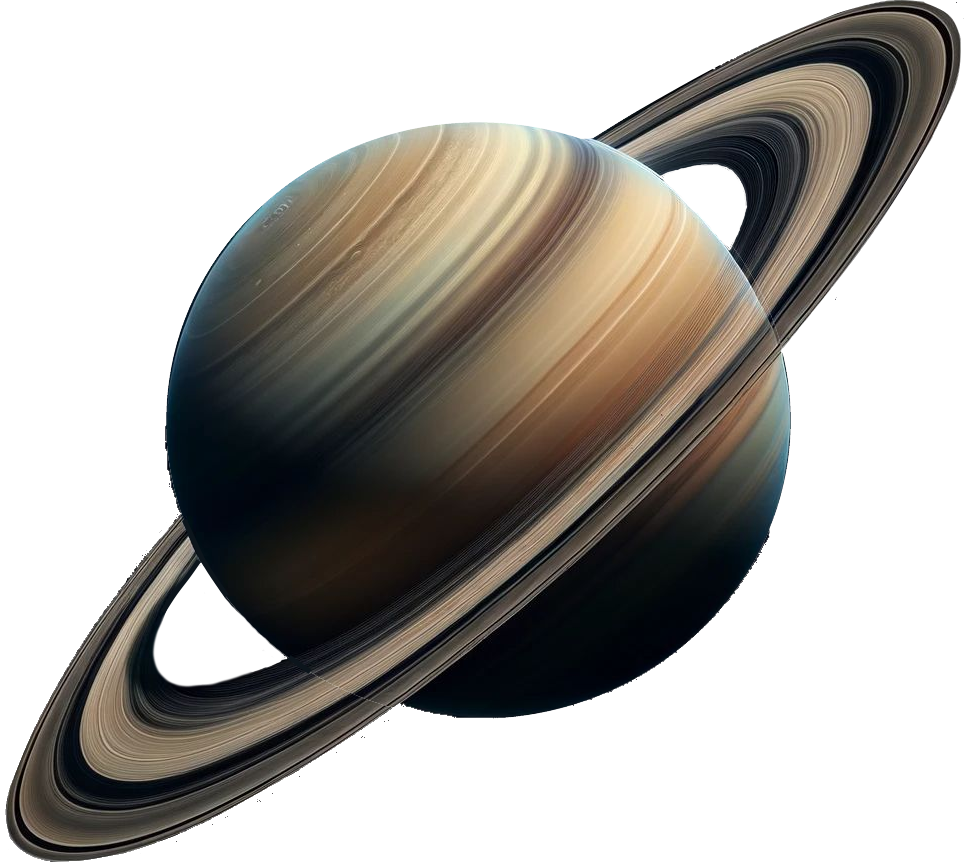Time flies like an arrow
Fruit flies like a banana
Ever wondered why there are seven days in a week?
Our calendar originates from a mixture of pagan and mythical beliefs, including:
It's convenient for followers of a religion to conform to society norms, even when there's no religious connection.
For example, our way of measuring time (see hours, minutes and seconds) are based on an early Babylonian system, and our modern calendar is based on pagan practices and astrology.
But whether we have religious leanings or not, we don't think of the calendar as a pagan thing; it's merely a means to measure time, using things called 'days' and 'months'.
The word "calendar" comes from observations of the moon, in particular, appearance of a new moon. The word can be traced back to the calends, the first day of the Roman month, when debts fell due and accounts were reckoned. That word in turn is from calare, which means to "call out" or "declare", as Roman priests ("pontiffs") did after witnessing a new moon that marked the calends.
What happened when the new moon was obscured by clouds?
Well in that case, the pontiffs would postpone the declaration until the next day. And if the moon was obscured over a prolonged period, the priests could use astronomical calculations or previous records to determine when the new moon was likely to occur. This could result in irregularities in the timing of festivals or events tied to the calendar.
The appearance of the new moon was crucial for being confident in declaring the beginning of the month.
The days of the week are based on Greek mythology, renamed over the years to match the equivalent gods of north European mythology. (Similar names are used in other European languages, such as French, German, Italian and Spanish.)
But first, let's go back to the Babylonian astronomers who identified seven celestial bodies: Saturn, Jupiter, Mars, the Sun, Venus, Mercury, and the Moon. They believed these revolved in Heaven around a stationary Earth and twinkly stars.
Having determined these bodies were pretty mysterious and therefore important, they had little to do other than amuse themselves by sitting on the banks of the Euphrates, looking up at the sky, stroking their chins and cogitating the concept of 'time'.
They divided the daylight time into 12 hours; a Zodiacally convenient number which divides cleanly by 2, 3, 4 and 6. The night time was also divided by 12, but the length of day 'hours' and night 'hours' would differ according to the season.
And we're blessed with that "base 12" system today, even though it seems more natural to use the decimal (base 10) numeral system, which is easy to count using our fingers. In fact the ancient astronomers used two numeral systems: duodecimal (base 12) and sexagesimal (base 60) which gave us 60 seconds in each minute of a 60-minute hour. Those guys were super cleverists!
Having identified which celestial bodies were worth further cogitootling, they observed planets moving against the background of fixed stars and tracked their apparent motion in the sky.
Saturn was the slowest, taking 29.5 years to complete a full cycle in the sky, giving ancient astronomers plenty of time to watch, wait and wonder why they didn’t pick a faster hobby.
Jupiter was the next slowest at 12 years, followed by Mars with a more reasonable 1.88 years, while the Sun kept things predictable, clocking in at just one zodiac year. Venus took 225 days, though with a rather complex retrograde motion, as if it couldn’t quite make up its mind. Mercury was even worse, zipping around in 88 days while constantly changing directions like a lost tourist. And then there was the Moon, absolutely flooring it at just 27.3 days.
Having sorted out the order of those celestial bodies, they named each hour of the day:
The 8th hour then recycled to Saturn, as would the 15th and 22nd. Following this pattern, the 23rd hour was Jupiter, the 24th Mars, and the 1st hour of the next day would be the Sun.
From this method, the first hour of each day was named after:
| 01 | 02 | 03 | 04 | 05 | 06 | 07 | ..... | 23 | 24 |
| ♄ | ♃ | ♂ | ☉ | ♀ | ☿ | ☽ | ..... | ♃ | ♂ |
| ☉ | ♀ | ☿ | ☽ | ♄ | ♃ | ♂ | ..... | ♀ | ☿ |
| ☽ | ♄ | ♃ | ♂ | ☉ | ♀ | ☿ | ..... | ♄ | ♃ |
| ♂ | ☉ | ♀ | ☿ | ☽ | ♄ | ♃ | ..... | ☉ | ♀ |
| ☿ | ☽ | ♄ | ♃ | ♂ | ☉ | ♀ | ..... | ☽ | ♄ |
| ♃ | ♂ | ☉ | ♀ | ☿ | ☽ | ♄ | ..... | ♂ | ☉ |
| ♀ | ☿ | ☽ | ♄ | ♃ | ♂ | ☉ | ..... | ☿ | ☽ |
(Click here to see the complete grid.)
| 01 | 02 | 03 | 04 | 05 | 06 | 07 | 08 | 09 | 10 | 11 | 12 | 13 | 14 | 15 | 16 | 17 | 18 | 19 | 20 | 21 | 22 | 23 | 24 |
| ♄ | ♃ | ♂ | ☉ | ♀ | ☿ | ☽ | ♄ | ♃ | ♂ | ☉ | ♀ | ☿ | ☽ | ♄ | ♃ | ♂ | ☉ | ♀ | ☿ | ☽ | ♄ | ♃ | ♂ |
| ☉ | ♀ | ☿ | ☽ | ♄ | ♃ | ♂ | ☉ | ♀ | ☿ | ☽ | ♄ | ♃ | ♂ | ☉ | ♀ | ☿ | ☽ | ♄ | ♃ | ♂ | ☉ | ♀ | ☿ |
| ☽ | ♄ | ♃ | ♂ | ☉ | ♀ | ☿ | ☽ | ♄ | ♃ | ♂ | ☉ | ♀ | ☿ | ☽ | ♄ | ♃ | ♂ | ☉ | ♀ | ☿ | ☽ | ♄ | ♃ |
| ♂ | ☉ | ♀ | ☿ | ☽ | ♄ | ♃ | ♂ | ☉ | ♀ | ☿ | ☽ | ♄ | ♃ | ♂ | ☉ | ♀ | ☿ | ☽ | ♄ | ♃ | ♂ | ☉ | ♀ |
| ☿ | ☽ | ♄ | ♃ | ♂ | ☉ | ♀ | ☿ | ☽ | ♄ | ♃ | ♂ | ☉ | ♀ | ☿ | ☽ | ♄ | ♃ | ♂ | ☉ | ♀ | ☿ | ☽ | ♄ |
| ♃ | ♂ | ☉ | ♀ | ☿ | ☽ | ♄ | ♃ | ♂ | ☉ | ♀ | ☿ | ☽ | ♄ | ♃ | ♂ | ☉ | ♀ | ☿ | ☽ | ♄ | ♃ | ♂ | ☉ |
| ♀ | ☿ | ☽ | ♄ | ♃ | ♂ | ☉ | ♀ | ☿ | ☽ | ♄ | ♃ | ♂ | ☉ | ♀ | ☿ | ☽ | ♄ | ♃ | ♂ | ☉ | ♀ | ☿ | ☽ |
(Astro doodles: ♄ ☉ ☽ ♂ ☿ ♃ ♀ - Where they come from)
Following the Jewish day numbering system, with the last day of the week being Saturday, the first day of the week became:
Sunday: Day of the Sun



Latin: dies solis - Helios, god of the sun
Saxon: sunnandaeg - god of the heat and light ball in the sky
Sun worship has always been popular and for obvious reasons - the sun gives us the warmth and light essential for survival. Some believe that the halo seen in Christian icons, the sun-shaped Eucharist wafer contained in the Catholic monstrance, and several other instances, look very much like pagan sun worshipping.
The sun features in many national flags, most notably Argentina, Japan, Namibia and Uruguay. And like the Star Spangled Banner of the United States, national flags are often objects of worship.
 | Argentina |
 | Japan |
 | Namibia |
 | Uruguay |
Monday: Day of the Moon

Latin: dies lunae - Luna or Selene goddess of the moon
Saxon: móna - god of the light ball in the night sky, and tide maker
The Latin luna is a feminine deity, possibly because the moon takes approximately 29 days to complete its cycle and women’s menstrual cycle is generally 28 days.
However, in cultures with Teutonic, Slavonic and Arabic languages, móna is a masculine deity.
Whatever the grammatical gender, the pareidolic image of a human face of the full moon is often known as the Man in the Moon, or in East Asia, it's a rabbit with a mortar and pestle.
Incidentally, Leonardo's painting titled "Mona Lisa" in Italian is spelt as Monna Lisa. The Monna is a contraction of Madonna (Madam), whereas Mona is a vulgar Venetian term for female genitalia.
OK, not useful information, but it is what it is.
Tuesday: Day of Mars
Latin: dies martis (day of the planet Mars) - Mars or Aires, god of war
Saxon: tiwesdaeg - god of the sky, etymologically related to Zeus (see Thursday)
From the Latin martis we get the French word for Tuesday Mardi, as in Mardi Gras.
(Click the image of Mars for a really sharp close up, showing extra-fine detail of the surface.)
The Saxon tiwesdaeg reveres the god Tiwas who lived on a high mountain and guided warriors who worshipped him. If a warrior died in battle Tiw would come down to earth with his angels and take the dead warrior to heaven.
(The 22nd of February 2022 (22/2/2022) actually was a 2sday.)
Wednesday: Woden's day

Latin: dies mercurii, or Hermes (messenger of the gods)
Saxon: Wodnesdaeg - Woden's day (king of the gods)
For the Latin mercurii, it's curious that mercury is liquid at room temperature, yet it's a large solid lump when orbiting close to the super-hot sun!
The Saxon Woden was the god who controlled all the other gods. His number-one mission was to gain all knowledge and wisdom. He visited all four corners of the world to gather information. Nothing could be hidden from him. In fact(!) he even wore out one of his eyes from seeing so much wisdom.
To cover the rather messy dead eye, he wore a large floppy hat and compensated for his sightlessness with blackbird on each shoulder. These birds were his extra eyes and could fly off to spy on people, and then report back to Woden. In this way, Woden knew everything that was going on and people had to be very careful how they behaved. After all, as king of all gods, he could wreak havoc on dissenters in any way he chose.
Here's a thought: Let's rename Wednesday as Webday. The World Wide Web god controls all the other gods. Web's number-one mission is to gain all knowledge and wisdom. He visits all four corners of the world to gather data. Nothing can be hidden from him. In fact he even sacrificed face to face conversations to see the wisdom through virtual forums.
To cover the rather messy bits and bytes, he wears a Macintosh and Windows, and bears Mozilla and Chrome on his shoulders. They are his eyes that spy on people, and then report back to Web. In this way, Web knows everything that's going on and people have to be very careful how they behave. After all, as king of all gods, Web can wreak havoc on dissenters in any way he chooses.
But don't worry; because as with Woden, the web has no supernatural power. The web is an idiot-savant who retains countless bits of information yet understands nothing.
Thursday: Thor's day

Latin: dies jovis - Jove (Jupiter), god of thunder
Saxon: thuresdaeg - Thor's day, god of thunder)
The Latin name gives us "By Jove!" (a shortened form of "By Jehovah!"), exclaimed when astonished by something, instead of "By God!" which may offend. Jove is another name for Jupiter, a god in ancient Rome.
The Saxon Thor predates the Marvel Comics superhero by millennia. Thunder was the sign that Thor was angrily throwing his large hammer across the sky. It's a good idea not to annoy this god. When he comes storming after sinners, the sparks of his chariot wheels create flashes of lightning.
Friday: Fria's day

Latin: dies veneris - Venus or Aphrodite, goddess of love
Saxon: frigedaeg - Freya's day, goddess of love
Frigg was a kind and beautiful Norse goddess and wife of Odin, the most powerful god. Together, their job was to oversee everything that happened in the world and Frigg's specialty was love and marriage.
Interestingly, the 16th century word 'frig' is a coarse euphemism for 'sexual intercourse'.
Saturday: Saturn's day

Latin: dies saturni - Saturn, god of agriculture.
Saxon: Seterne's day, god of agriculture
Greek: Astronomical symbol ♄ represents an agricultural sickle
People believed that the god Saturn controlled the weather and hence the success or failure of crops. Sacrificing a farm animal to Saturni would increase the chances of pleasing the god, resulting in favourable weather and a good crop.
Modern: We seem to have lost faith in Saturn providing us with a good crop and like all the other planets, generally treat them whimsically. Indeed, so discourteously that all the mountains on Saturn's moon Titan have been named after peaks in the Lord of the Rings.
Although our days are named after gods, the names were not regularly capitalized until the 17th century. Relating that prosaicism will do you no favours during dinner conversation, unless your companions are drunk.
The word 'month' stems from 'moon', and month names we use were chosen to celebrate Roman deities and emperors. (Similar names are used in other European languages, such as French, German, Italian and Spanish.)
The last four months are just based on a mundane numbering system. The year used to begin in March, so September through to December were months 7 to 10. A numbering system is still used in many cultures today for the whole year. Modern Japanese, for example, has 1-gatsu, 2-gatsu, 3-gatsu ... 12-gatsu. Similarly in Chinese: 1-yuè, 2-yuè, 3-yuè ... 12-yuè. (See days months seasons in Japan)
(Curiously, when Pope Gregory XIII changed the calendar system in 1582 and established the Gregorian calendar with January as the first month of the year, he didn't bother to rename any of these months. December, for example, could have been changed to acknowledge Advent or Christmas with Advenber or Chrisber.)
The length of time between slipping on a banana peel and smacking the pavement:
bananosecond.
What do you call a tense clock?
All wound up.
Why did the boy sit on his watch?
He wanted to be on time.
Why did you throw the clock out the window?
I wanted to see time fly.
By 'pagan', we are taking the widest definition of anything that is not monotheistic
There are a few theories about why the ancients used 60 (sexagesimal) as the base for their counting system. Here are a couple of the more popular:
Most of the world now uses the decimal system, ten being the number of our fingers and thumbs. Very handy.
We doubt the ancients had 60 fingers and thumbs, but nevertheless, it is likely they used their digits for counting.
Each finger (not the thumb) has three bones. By using the tip of the right thumb, you can count by pointing to the each of the three bones of each of the four fingers of the right hand, totalling 12. Having counted up to 12, raise a finger on the left hand, then start counting again to 12 on the right hand. After raising the thumb and all four fingers on the left hand, you've reached 60 (3 x 4 x 5).
Alternatively, they might have counted the average resting heart beat at 60 pulses per minute, and 60 of those, times 24, took exactly one day. What patience!
We think the finger-joint counting method is the most likely.

Sherlock Holmes and Dr Watson go on a camping trip.
1,339 QI Facts To Make Your Jaw Drop by John Lloyd, John Mitchinson & James Harkin (Faber & Faber £9.99)
See also Sun Cross.
Beard, M., North, J., & Price, S. (1998). Religions of Rome: Volume 1: A History. Cambridge University Press.
Broughton, T. R. S. (1951). The Magistrates of the Roman Republic, Volume 1. American Philological Association.
Lendering, J. (2021). Roman Calendar Livius.org